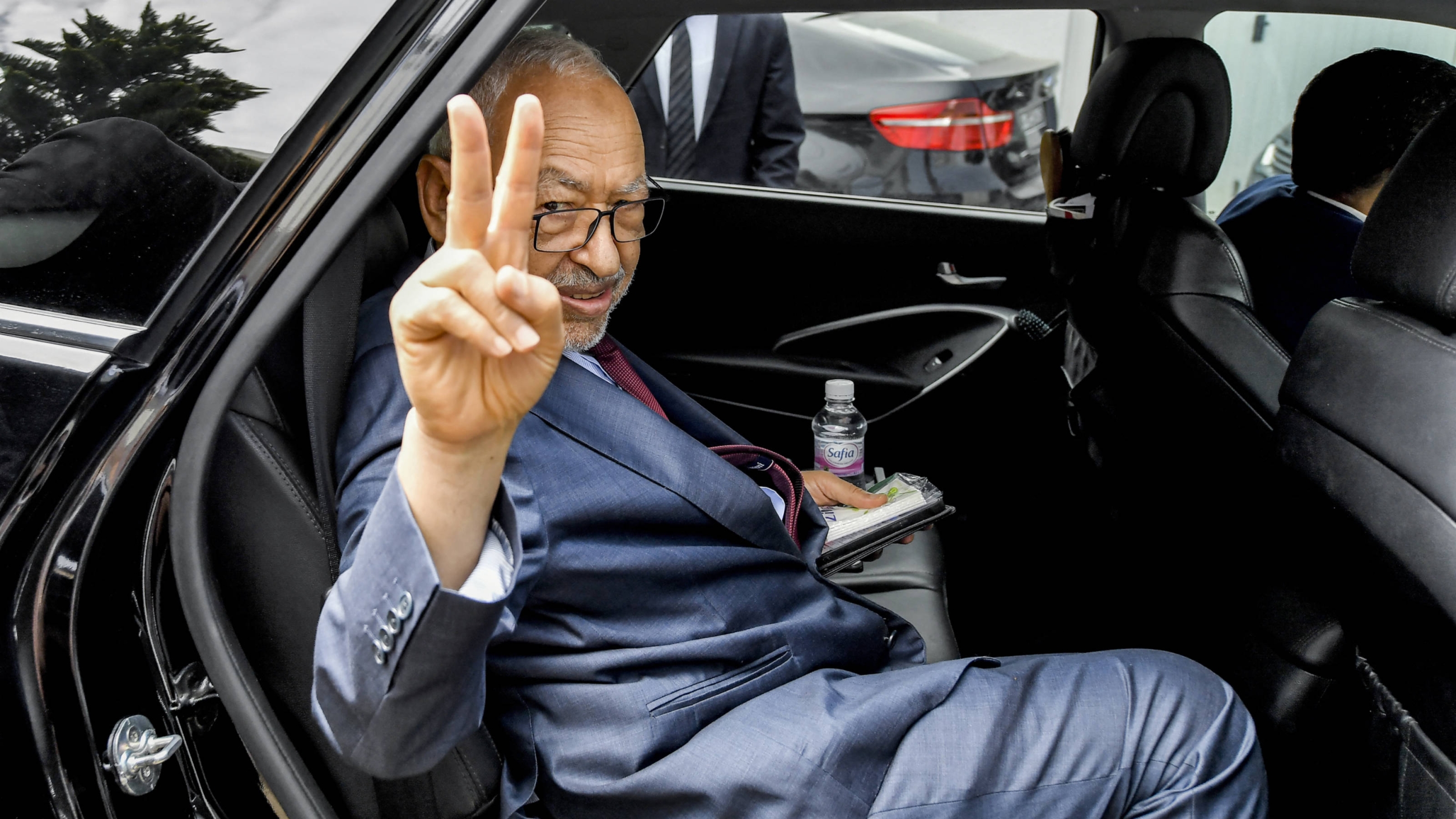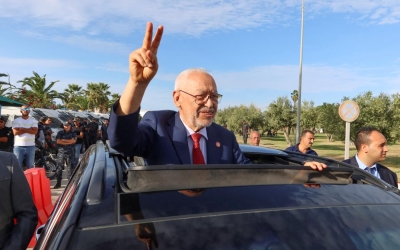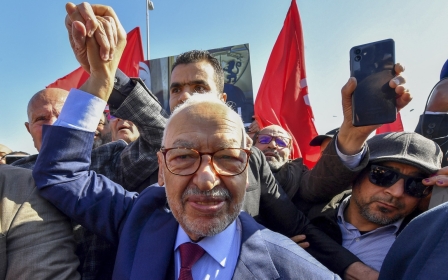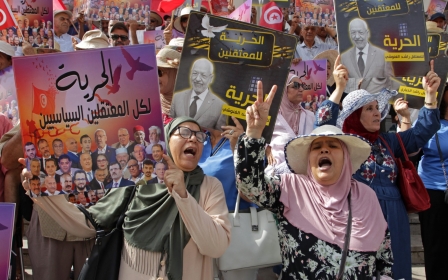Tunisia: Ghannouchi says 'judges under threat', in letter refusing to appear in court

Tunisian opposition leader Rached Ghannouchi, a fierce critic of President Kais Saied, informed a judge of his refusal to appear in court, in a letter citing unfair trials run by judges exposed to threats.
The head of Tunisia's largest opposition party, Ennahda, has been in prison since April 2023 and has repeatedly refused to appear in court to face a raft of charges that his lawyers describe as "unfounded and politically motivated".
On Friday, a Tunisian appeals court upheld an initial ruling sentencing Ghannouchi to three years in prison on charges of receiving foreign financing to bankroll Ennahda's political campaigns in 2019.
The sentencing adds to a 15-month jail term that a different court handed down last year after he was found guilty of supporting terrorism and inciting hatred.
Ennahda on Friday said Ghannouchi had sent a letter to a judge in one of the cases against him, saying he would have accepted to stand in court to defend his "innocence" were the "minimum standards of a fair trial" upheld in the country.
New MEE newsletter: Jerusalem Dispatch
Sign up to get the latest insights and analysis on Israel-Palestine, alongside Turkey Unpacked and other MEE newsletters
"Unfortunately, judges live under threats from the highest authority in the country, because [as Saied had said,] 'whoever acquits them is as guilty as them'," Ghannouchi wrote.
"The matter went beyond threats to actions and the trial of dozens of prominent figures and the best judges in Tunisia."
Tunisia has been engulfed in political and economic crises since 2021, when Saied unilaterally suspended parliament - where Ennahda held the largest number of seats - and dissolved the government in what many have called a "constitutional coup".
The president subsequently ruled by decree, before pushing through a new constitution that enshrined his one-man rule. The state has since cracked down on critics, arresting opposition leaders, political activists, judges and lawyers on accusations of conspiring against national security.
Amnesty International has described the crackdown as a "politically motivated witch hunt".
Last week, Tunisian authorities arrested three political commentators over their criticism of the government, including lawyer and commentator Sonia Dahmani, TV and radio presenter Borhen Bssais and political commentator Mourad Zeghidi.
Ghannouchi has been a vocal critic of Saied's power grab, and had a travel ban issued against him last year. His Tunisian bank accounts and those of several relatives and members of his party were also frozen.
In his letter to the judge, Ghannouchi said the the judiciary in Tunisia was being used for political objectives.
"I find myself forced not to attend in order to relieve you of an awkward situation and so as not to contribute to the pressure and threats to which the judges may be exposed if they were to rule fairly and acquit me and my party," he told the judge.
Middle East Eye delivers independent and unrivalled coverage and analysis of the Middle East, North Africa and beyond. To learn more about republishing this content and the associated fees, please fill out this form. More about MEE can be found here.





